
Edifices of Empire
Capitalism, from its very beginning, was twinned with racism. Two books describe how these two forces emerged together, at the same moment in the unfolding of Western political economy.


Capitalism, from its very beginning, was twinned with racism. Two books describe how these two forces emerged together, at the same moment in the unfolding of Western political economy.

Since Dilma Rousseff’s impeachment, Brazil has been in political turmoil. With ex-president Lula’s recent surrender, a new right threatens to become the decisive force in the 2018 elections.

As the country prepares for a historic presidential succession, ending the Castros’ nearly sixty-year grip on the highest office, inequality is growing and ordinary Cubans are increasingly disaffected. A report from Havana.
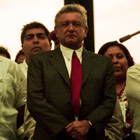
Andrés Manuel López Obrador is hardly the demagogue of his critics’ imaginations. The more relevant question is: if he becomes Mexico’s next president, will he actually bring the changes the country needs?
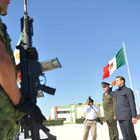
2017 was Mexico’s deadliest year on record—and a new law deepening the military’s role in law enforcement threatens only to make things worse.

Valeria Luiselli discusses her new book Tell Me How It Ends: An Essay in 40 Questions, about her experience translating in a federal immigration court.

Javier Valdez was the sixth journalist murdered in Mexico so far this year. What will it take for his killers to see justice?
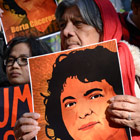
As tens of thousands flooded Washington, D.C. for the People’s Climate March, they carried the voices of those most at risk for defending the environment: indigenous activists like Berta Cáceres, who was murdered in Honduras last year and whose true killers remain at large.
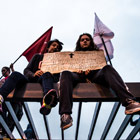
In the face of a far-reaching austerity package being imposed by an unelected government, more than 1 million Brazilian workers took the streets Friday for the country’s first general strike in decades.
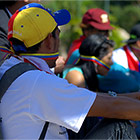

In 1998, many North American and European intellectuals hailed the emergence of a new Latin American left when Hugo Chávez ascended to the presidency of Venezuela. When Evo Morales became president of Bolivia in 2006, and Rafael Correa won the …

Fidel Castro cloaked himself in protean myths. But learning from his life and the Cuba he governed requires looking past the mythologies to squarely face both the powers arrayed against him and the costs of the decisions he made to confront them.
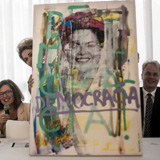
Dilma and Lula have been refashioned as leftists in defeat. But for the Workers’ Party, it might be too late.
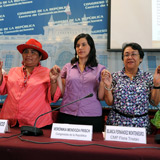
In a country where left politics has been marred by decades of sectarian strife and a devastating civil war, can a new coalition of socialists, feminists, and greens point a more democratic way forward—and win?
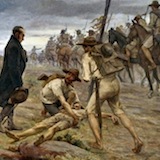
In her new book, Our Sister Republics, Caitlin Fitz exhumes a forgotten moment in the history of the Americas, a time when residents of the newly formed United States came to see Latin Americans as partners in a shared revolutionary experiment.

As Latin America’s “pink tide” appears to ebb, Patrick Iber, Javier Buenrostro, Sujatha Fernandes, Bryan McCann, and Thea Riofrancos examine its lessons for democratic socialists in the region and abroad.